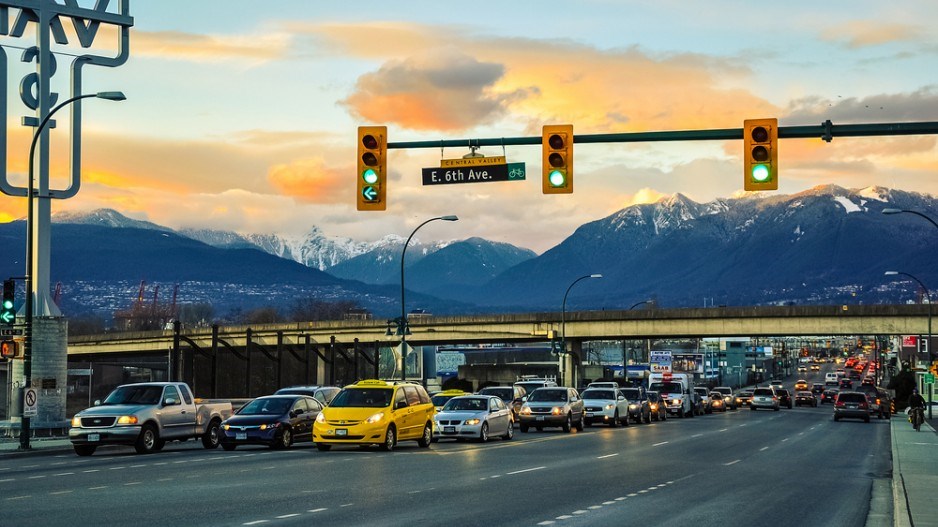Getting stuck in a traffic jam can be frustrating, but the cost of congested roads goes far beyond just annoyance.
The direct costs related to congestion across Metro Vancouver are as much as $1.4 billion every year, according to a report released by Canada’s Ecofiscal Commission November 2.
“Congestion on our bridges, roads and freeways leads to wasted time for commuters and delayed goods movement,” said Chris Ragan, commission chair and McGill University associate professor of economics.
The costs aren’t just fiscal, he said.
“Congestion also means a lower quality of life for the thousands of frustrated commuters who respond by making difficult choices about where to live and where to work, further exacerbating the costs of congestion,” he said.
“And congestion increases air pollution from vehicles, which contributes to health problems such as asthma, high blood pressure, cardiovascular disease, diabetes and stress.”
The report suggests congestion pricing could be part of the solution. This could include harmonized bridge tolling, changing tolls at peak traffic times and improving public transit.
“We’ve seen tolls work to reduce congestion on bridges like the Port Mann, but a single toll bridge can push traffic elsewhere,” Ragan said.
“We need less congestion everywhere, and bridges are the pain points.”
The commission found congestion pricing has worked in other cities around the world. For example, in a pilot program launched in Oregon, increasing fees during peak traffic times led to a 22% drop in traffic.




